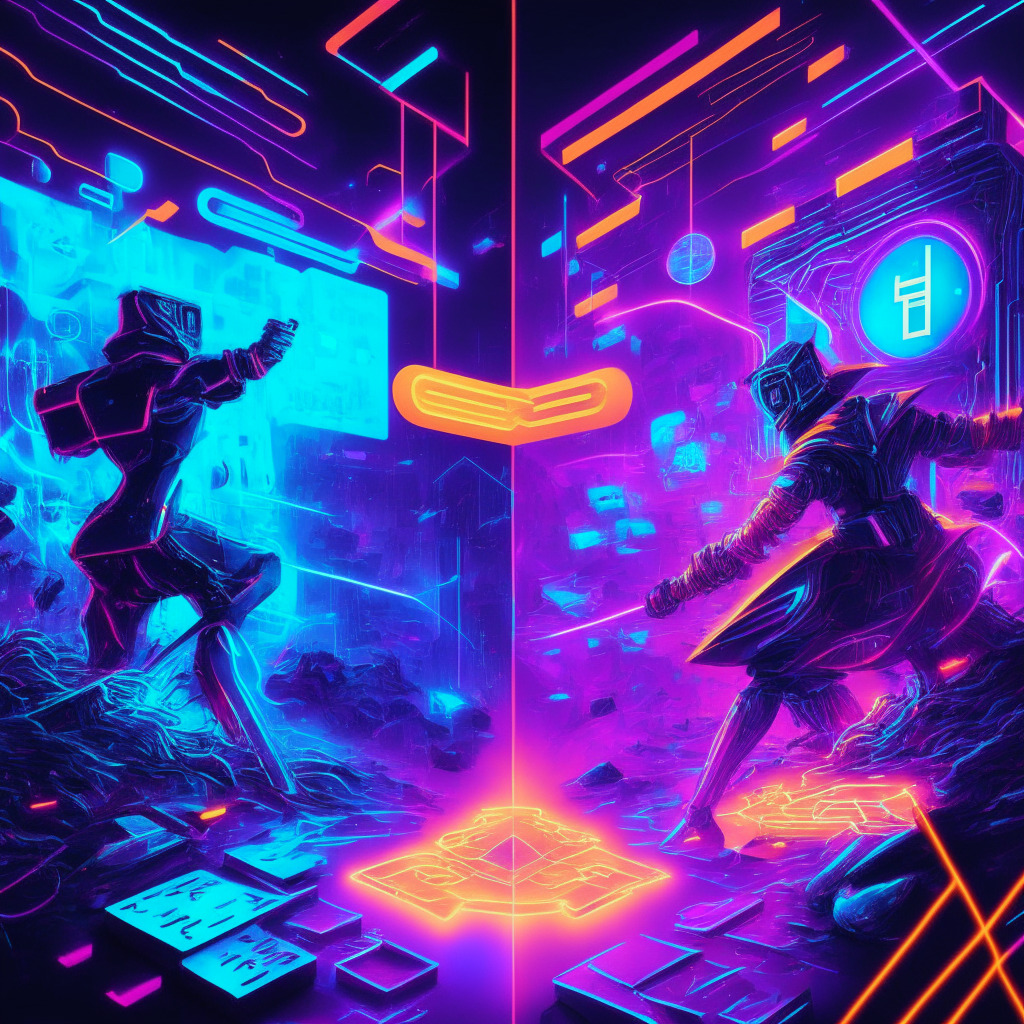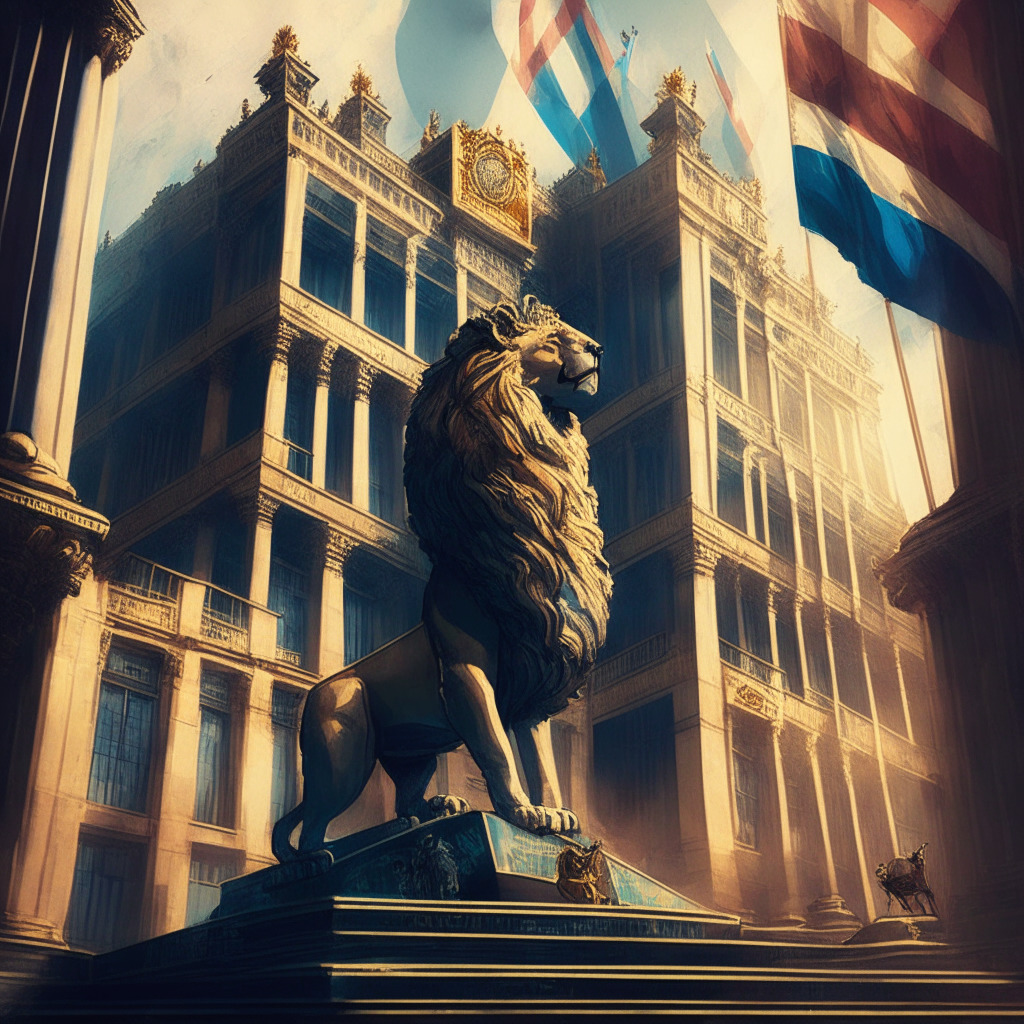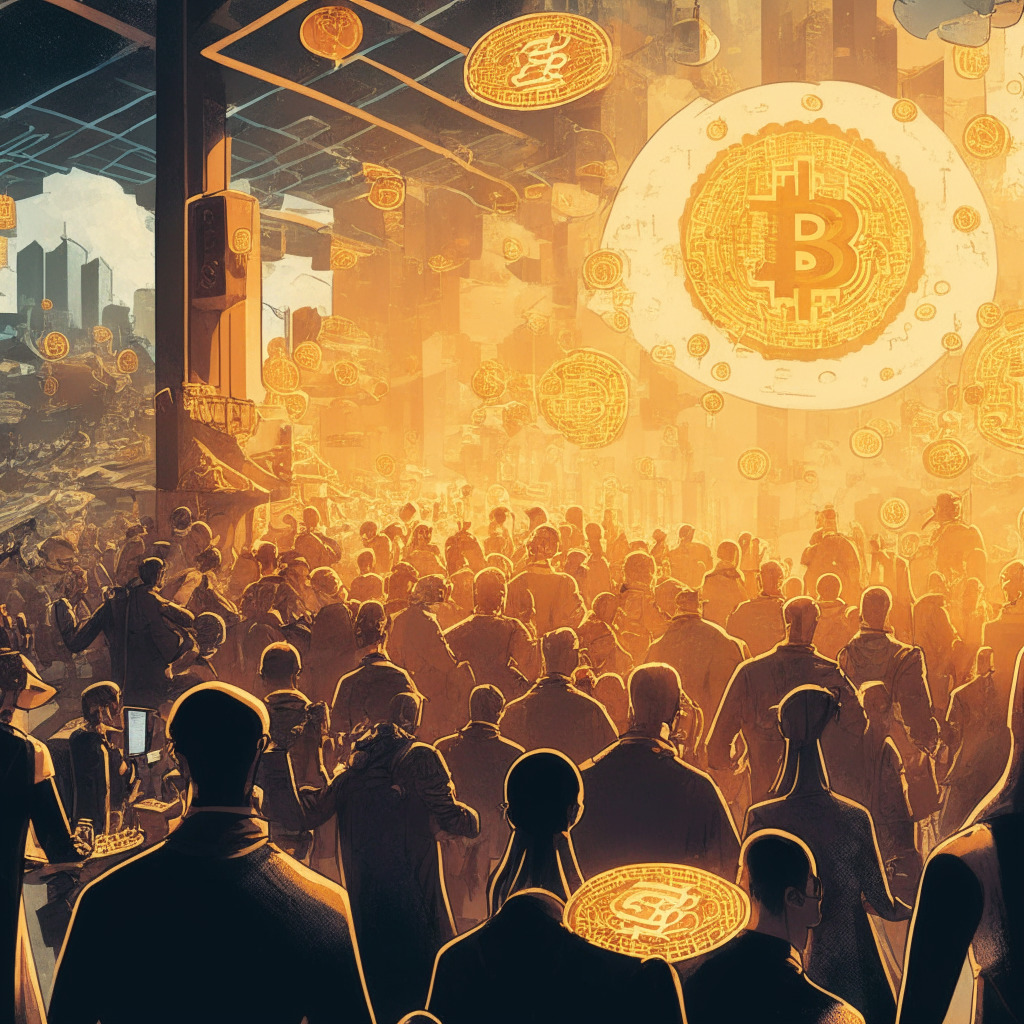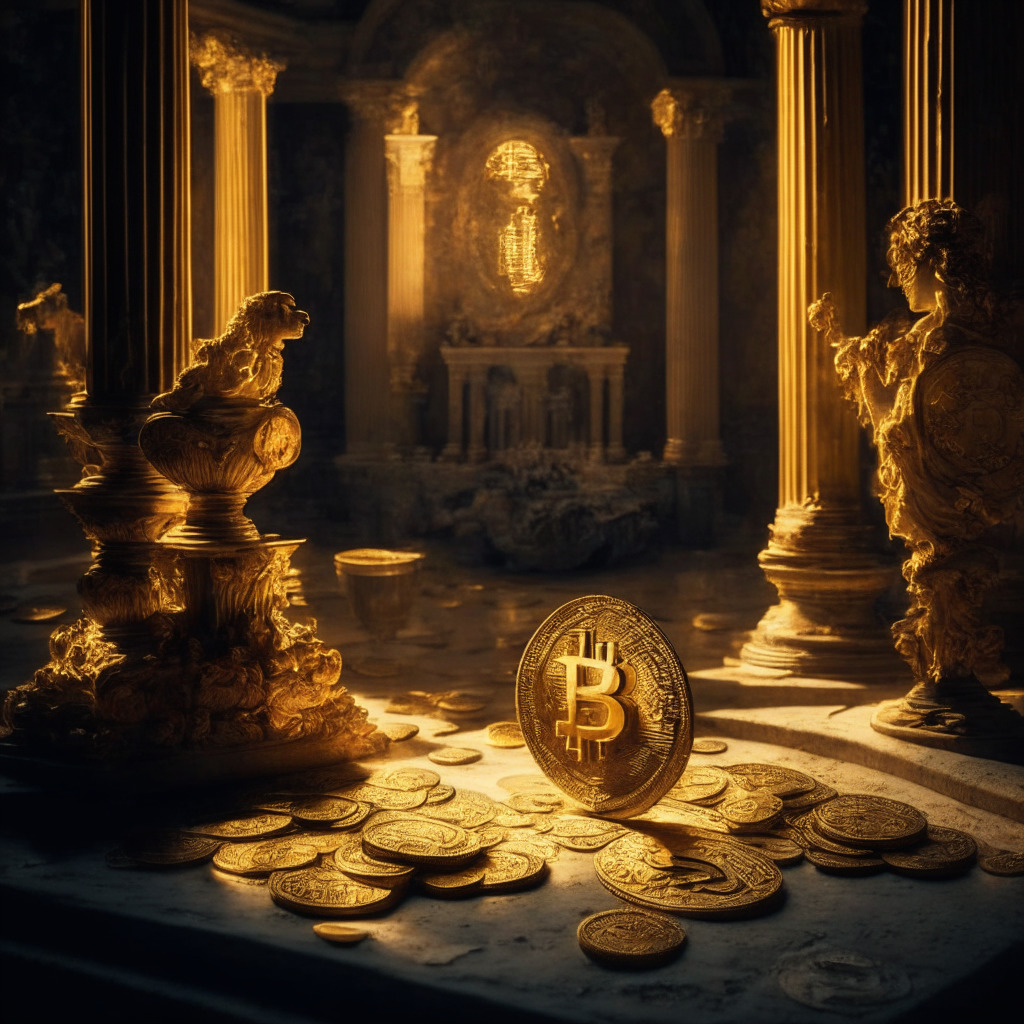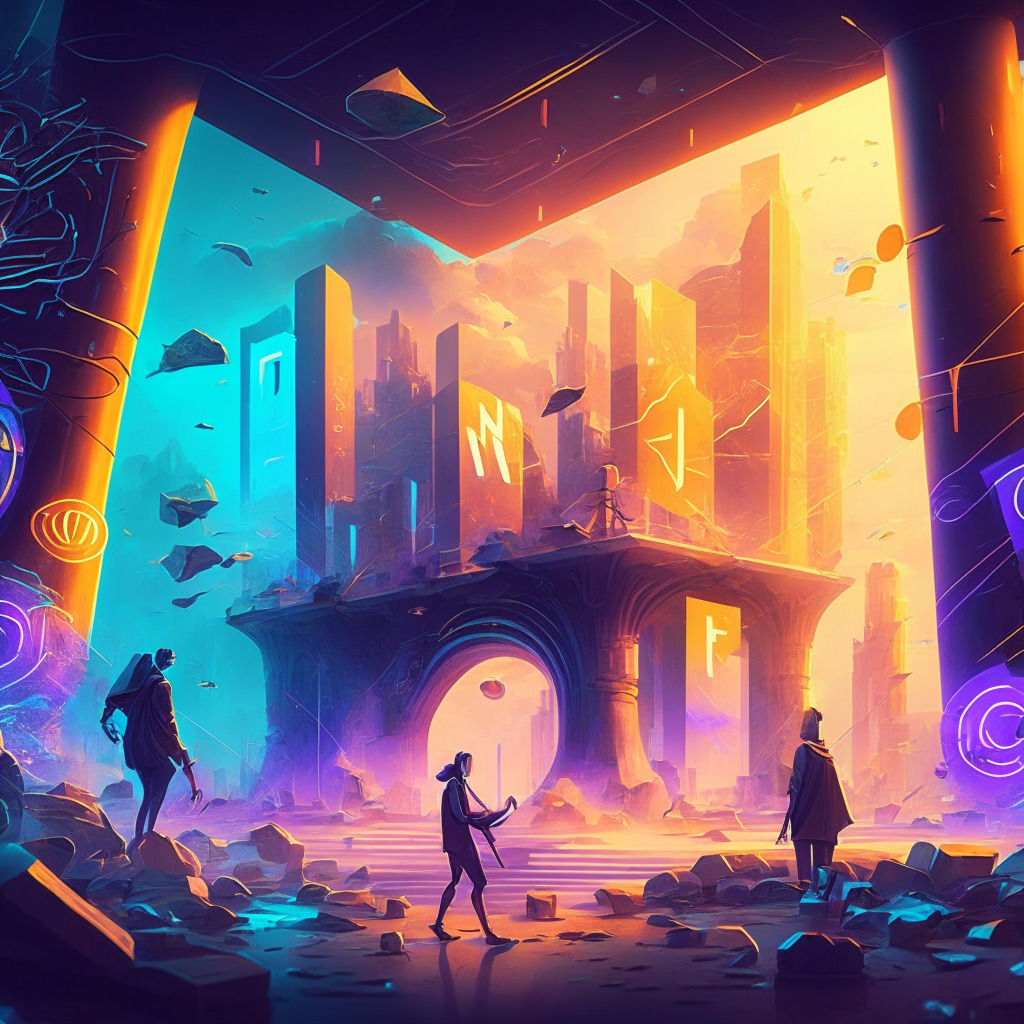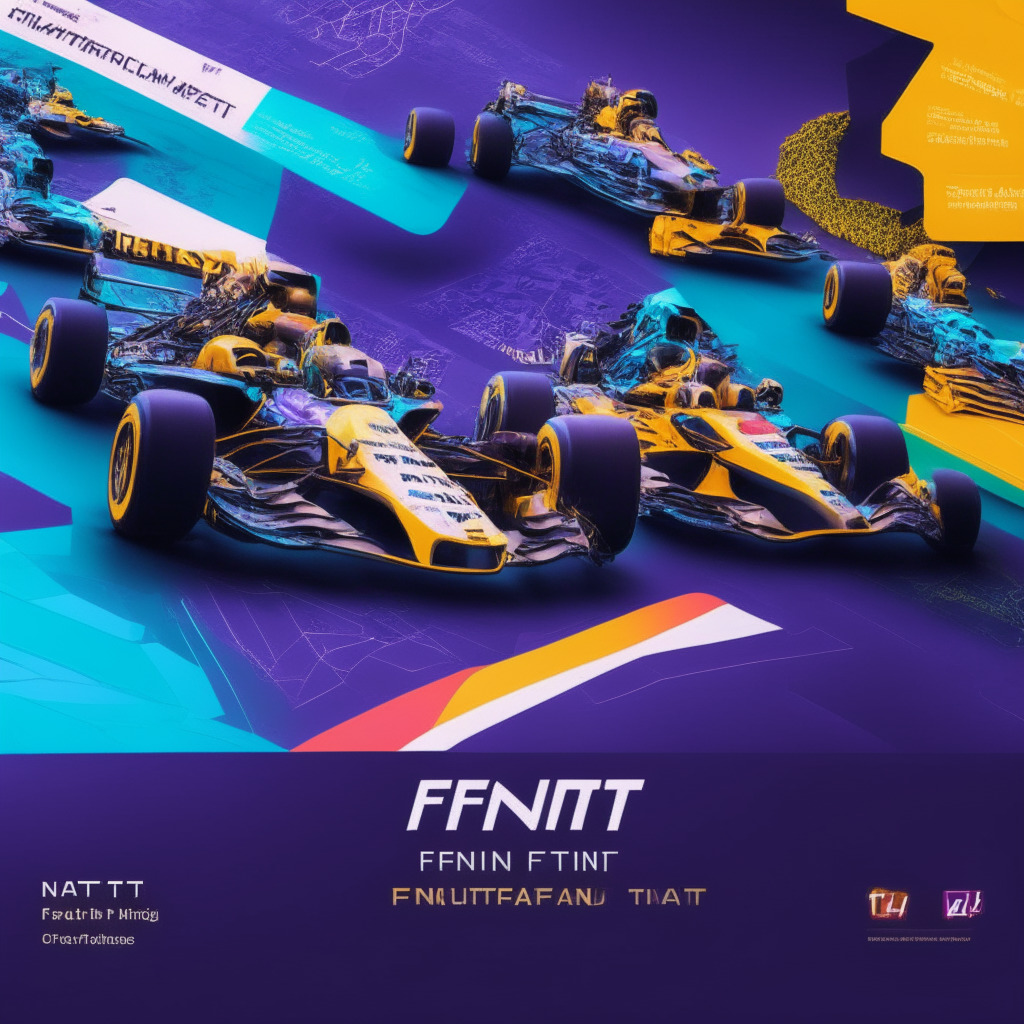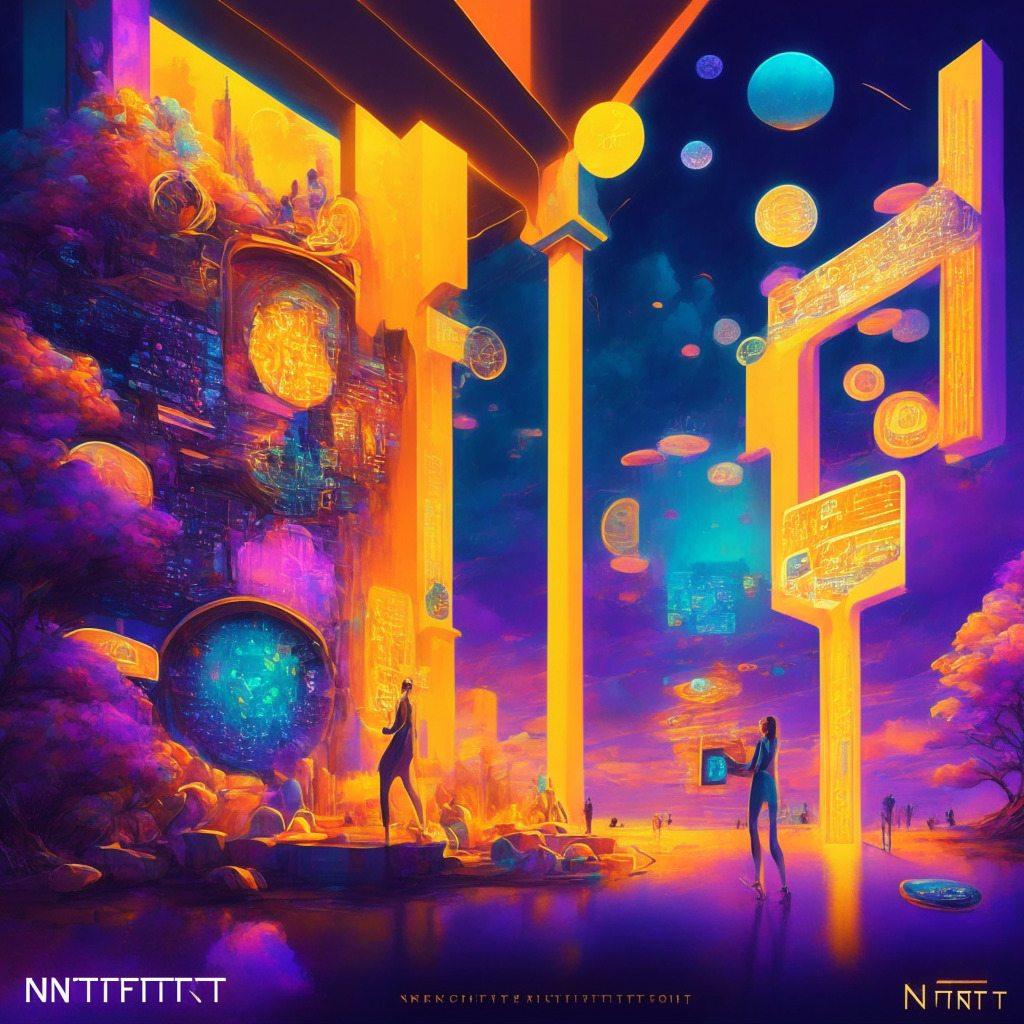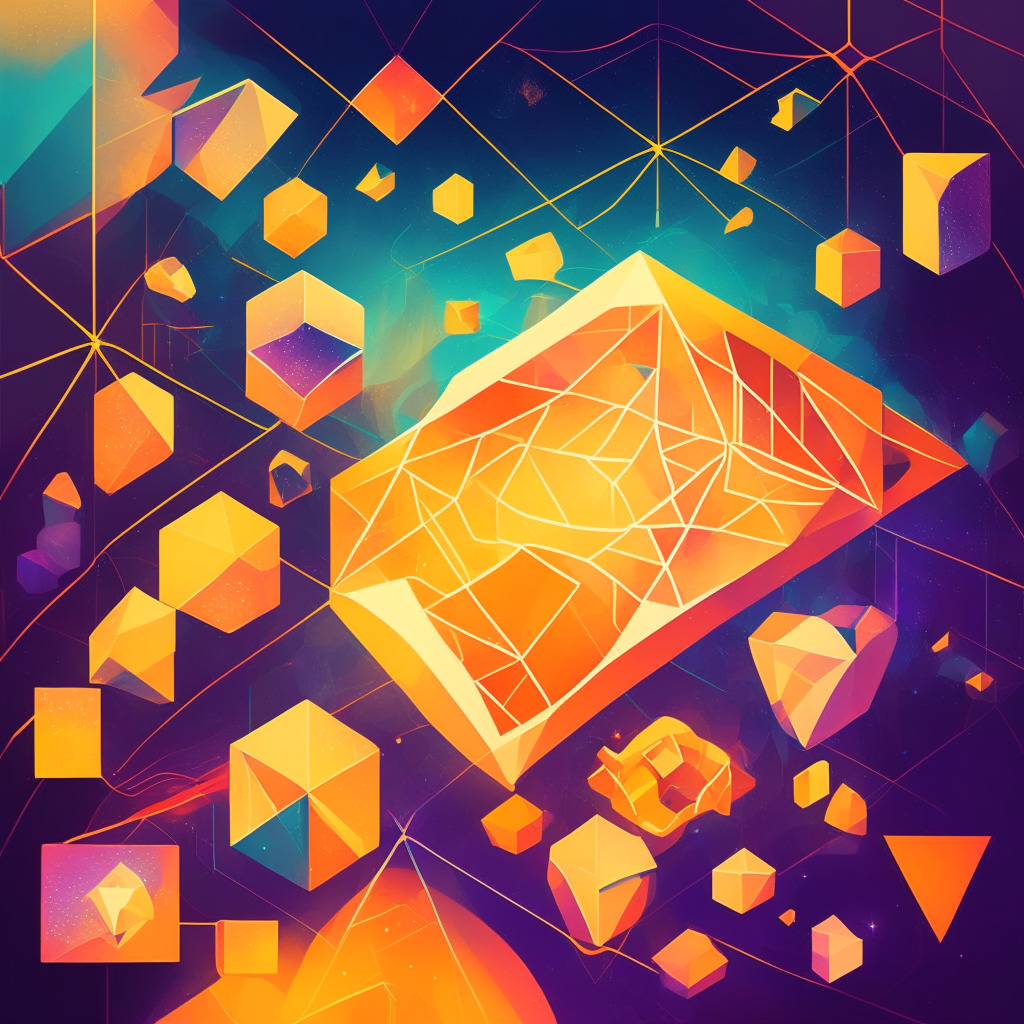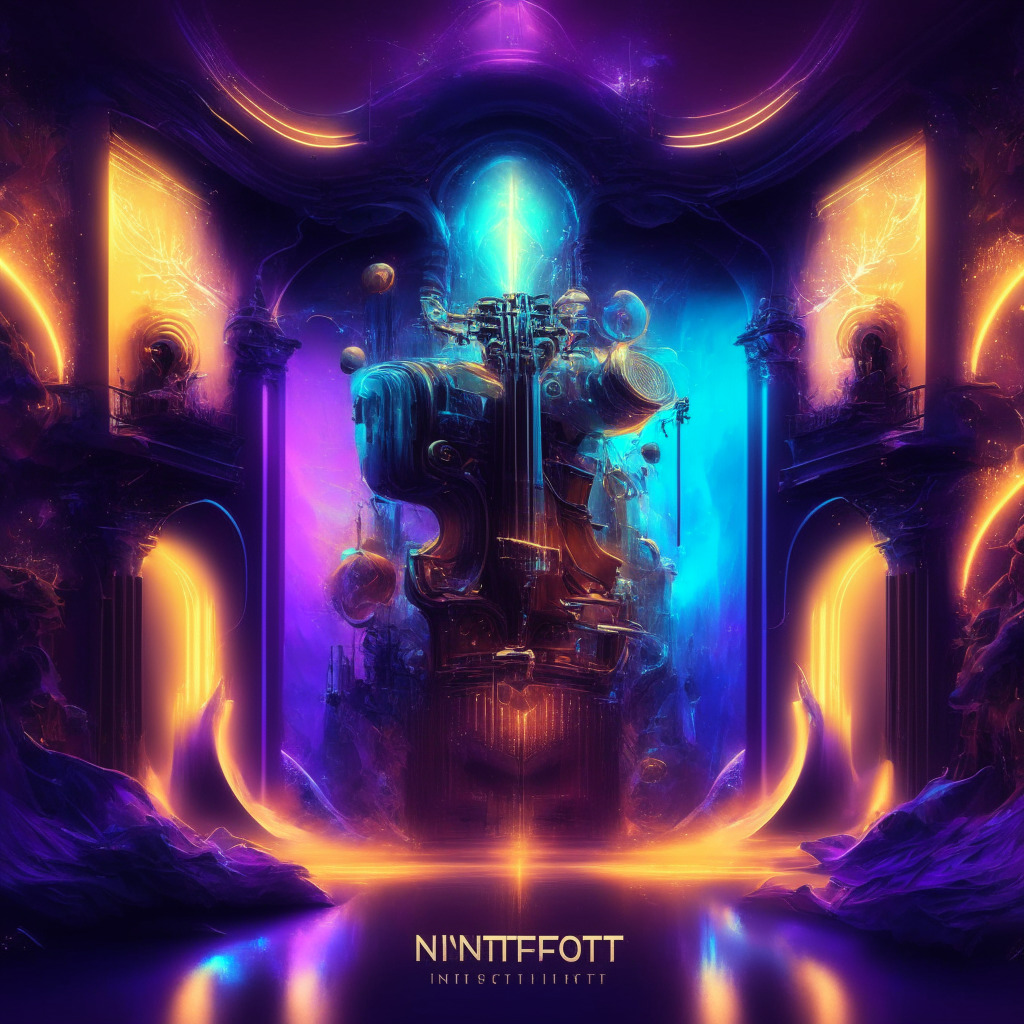A new protocol called “Ethscriptions” has landed on Ethereum, offering an affordable and decentralized way to create non-fungible tokens (NFTs) and digital assets on the blockchain. Developed by Genius.com co-founder Tom Lehman, Ethscriptions utilizes Ethereum’s “calldata” in smart contracts for a more affordable minting process.
Search Results for: non-fungible token
Nike, Fortnite, and the Future of NFTs in Mainstream Gaming
Gaming and technology are embracing blockchain and Web3 via non-fungible tokens (NFTs), with Nike potentially partnering with Fortnite creator Epic Games. This collaboration could involve Nike’s Air Max shoe brand, digital apparel platform .Swoosh, and Epic Games’ Unreal Engine software, signaling a shift towards NFT incorporation in mainstream gaming.
Bankrupt Crypto Hedge Fund’s NFTs Fetch Millions: A Lesson in Market Volatility and Caution
Bankrupt Singaporean crypto hedge fund Three Arrows Capital’s (3AC) digital collectibles fetched $10.9 million at a New York auction. This reflects increasing interest in non-fungible tokens (NFTs) among non-crypto and non-NFT collectors. However, the NFT market faces declining sales and requires cautious navigation by enthusiasts and investors.
Binance Exits Netherlands: Regulatory Hurdles and the Future of Crypto Compliance
Binance is exiting the Netherlands due to challenges in registering as a virtual asset service provider in EU countries. Netherlands-based customers were informed that crypto deposits will be disabled starting next month, with trade and staking of non-fungible tokens blocked from July 12.
Phygital Revolution: Louis Vuitton’s NFT Treasure Trunks and the Future of Luxury
Louis Vuitton’s upcoming “Treasure Trunks” merge physical products with non-fungible tokens (NFTs), creating a “phygital” experience for consumers. While non-transferable, these NFTs offer unique appeal and exclusive access to future products, potentially driving luxury brands to experiment with this concept for marketing and status benefits.
UK FCA’s New Crypto Ad Rules: Impact on Airdrops, NFTs, and Industry Growth
The UK Financial Conduct Authority (FCA) will implement new rules from October 8, affecting cryptocurrency promotions, including non-fungible tokens (NFTs) and crypto airdrops. Categorized as a “restricted mass market investment,” crypto advertising must now include clear risk warnings, and incentives for the general public will be banned.
Bitcoin’s Fee Spike and Ordinals Protocol: Innovation or System Abuse?
The Bitcoin network’s transaction fees have surged due to the new “Ordinals” protocol, enabling non-fungible tokens and other applications. This has led to debates among developers regarding its impact on the network’s functionality, congestion, and the balance between innovation and transaction moderation.
GTA 6 Rumors: Crypto, NFTs, and the Future of Blockchain Gaming
Rumors suggest that Grand Theft Auto VI (GTA 6) may incorporate cryptocurrency and non-fungible tokens (NFTs) as a play-to-earn game, with in-game items as NFTs. However, GTA creators Rockstar Games have not confirmed these claims, and no solid evidence supports the rumors.
Crypto Cynic Peter Schiff Hacked: Exploring the Irony of Gold vs Digital Currency Debate
Twitter’s favorite crypto cynic, Peter Schiff, recently had his account hacked, promoting a fake gold coin scam. Notably, Schiff has expressed skepticism towards cryptocurrencies but holds a non-fungible token (NFT) collection, showcasing his openness to blockchain possibilities.
Nike’s Partnership with EA Sports: Exploring the Impact on NFTs, Gaming, and Digital Fashion
Nike and EA Sports have partnered to integrate Nike’s digital creations from its .SWOOSH platform into EA Sports gaming titles, aiming to provide immersive experiences and high-level customization. This collaboration follows Nike’s recent venture into non-fungible tokens (NFTs) with its sneaker collection.
The Great Debate: Treating Crypto Assets as Securities by Default in the EU
A study commissioned by the European Parliament suggests treating crypto assets as securities by default, applying stringent EU governance and authorization rules. The report highlights regulatory challenges in the complex, cross-border crypto industry and raises questions about addressing decentralized finance, staking, and non-fungible tokens within the upcoming Markets in Crypto Assets (MiCA) regulation.
NFT Royalties: Empowering Creators or Stifling Innovation in the Web3 Era?
In the era of Web3, non-fungible tokens (NFTs) have revolutionized digital content creation, ownership, and exchange. NFT royalties offer passive income from secondary sales, enabling a sustainable source of income for creators. Despite concerns regarding fees, they hold the potential to level the playing field in the digital creator landscape.
Binance NFT Loans: Unlocking Potential or Opening Pandora’s Box for Crypto Borrowers?
Binance introduces a non-fungible token (NFT) loan feature allowing borrowers to use NFTs as collateral to borrow cryptocurrency without selling assets. This service initially supports profile NFT collections like BAYC, Azuki, MAYC, and Doodles, and utilizes a Peer-to-Pool approach for a secure experience.
NFT Race Tickets Revolutionize Formula 1: Exciting Prospects and Lingering Concerns
Formula 1 debuts non-fungible token (NFT) race tickets at the Monaco Grand Prix, collaborating with Platinium Group, Elemint, and Bary. NFT tickets offer transparency, traceability, and personalized experiences while providing additional utility post-event. Challenges include user adoption and environmental concerns.
Astaria’s NFT Lending Revolution: Boosting Liquidity and Simplifying Processes
Astaria, a non-fungible token (NFT) lending platform co-founded by Joseph Delong, former CTO of SushiSwap, has emerged with support for over 300,000 NFTs. By partnering with NFT appraisal service Upshot, Astaria streamlines liquidity provision and leasing processes, offering a more user-friendly lending experience and fostering growth in the Ethereum-based NFT ecosystem.
XRPL Amendments: Balancing Efficiency Gains and Server Disruptions in Decentralized Systems
Ripple Labs’ XRP Ledger is undergoing an amendment voting process to enhance efficiency. Key amendments include the “CryptoConditionsSuite” which could block several servers, fixing non-fungible tokens, and reducing fees. While the proposed changes aim for efficiency and data accuracy, concerns arise over potential server disruptions.
NFTs in Gaming: The Delicate Balance Between Unprecedented Monetization & Over-commercialization
Azra Games is integrating Non-Fungible Tokens (NFTs) into gaming, aiming to create synergy between gaming experiences and digital assets. This allows for ownership, trading, and monetization of in-game assets, but also raises concerns about overly commercializing the gaming experience.
Bowling Achievements Turned NFTs: Pros, Cons & the Future of Digital Awards
The Professional Bowlers Association (PBA) and Bowlero have launched League Bowler Certification Awards, tokenized achievements in the form of non-fungible tokens (NFTs), on the Avalanche blockchain. These soulbound tokens will be airdropped to around 300,000 Bowlero league participants to recognize their bowling accomplishments, paving the way for blockchain integration in the sports industry.
Balancing Blockchain and Gameplay: NFTs, Scalability, and the Gaming Industry’s Future
In this article, the fusion of blockchain technology and the gaming industry is explored, discussing the potential impact of non-fungible tokens (NFTs) on gaming. Industry expert Chris Clay highlights the importance of balancing NFT benefits with engaging gameplay experiences, while addressing potential challenges and skepticism surrounding this emerging technology.
Exploring Bitcoin-Based NFTs: DIBA Marketplace, RGB Smart Contracts, and the Future of Digital Assets
DIBA, a new marketplace for exchanging Bitcoin-based non-fungible tokens (NFTs), offers trading on layer 2 networks like the Lightning Network. Using “Really Good for Bitcoin” (RGB) smart contracts, DIBA aims to enable cheaper, more private transactions and simplify token issuance on Bitcoin.
From Crypto Trader to Art Sensation: Trevor Jones’ Blockchain Innovations in Art World
Trevor Jones, one of the top 10 most successful crypto artists globally, began his journey in 2017 with Bitcoin investment. Turning to crypto painting in 2018, Jones held a crypto-themed exhibition, later venturing into non-fungible tokens (NFTs) and breaking sales records on SuperRare. His innovative blend of painting and blockchain technology has paved the way for success in the digital realm.
Bitcoin Frogs Leap to NFT Fame: Impact on Bitcoin Fees and Tech Landscape Debated
The world of non-fungible tokens (NFTs) has been taken by storm with the launch of Bitcoin Frogs, a collection of 10,000 unique frog collectibles minted on the Bitcoin blockchain. Within 24 hours, trading volume reached over $2.2 million, outpacing established collections like Bored Apes. The Ordinals Protocol has enabled NFTs issued on Bitcoin to gain traction but has also led to skyrocketing fees.
China’s NFT Conundrum: Balancing Blockchain Growth and Regulatory Control
China’s Supreme People’s Procuratorate issued guidelines addressing non-fungible tokens (NFTs) amid concerns of financial risks, management risks, network security breaches, and legal issues. The statement highlights China’s close monitoring of NFT proliferation, which might lead to discussions on potential bans or regulated inclusion within the country’s digital infrastructure.
China’s NFT Warning: A New Regulatory Crackdown Looming Over the Digital Collectible Market?
China’s Supreme People’s Procuratorate warns about non-fungible tokens (NFTs), relating them to banned virtual assets. The agency calls for legal risk research and discusses the inability of NFT owners to fully “enjoy” digital art ownership. This perspective challenges the NFT understanding in the Chinese market.
Crypto Gaming Revolution: NFTs, In-Game Economies & Overcoming Skepticism
Cryptocurrency and gaming are converging, with crypto-based video games and non-fungible tokens (NFTs) as virtual assets on the rise. Matt Sanders, Avenged Sevenfold vocalist and early crypto adopter, believes NFTs can revolutionize in-game economies by making high-value digital assets transferable and sellable. However, he emphasizes that great gameplay should come first, with crypto rewards and incentives serving as supplementary features.
Enhancing Security with Bitski and Ledger Wallet Integration: Pros, Cons, and Conflicts
Web3 wallet Bitski has integrated with hardware wallet Ledger, enhancing security features and enabling users to securely connect their wallets to decentralized applications (dApps). The partnership supports user-friendly wallet experiences and provides a transaction simulator to help identify potential security risks. Users can switch between Ethereum and Polygon networks to purchase non-fungible tokens across both platforms.
Litecoin’s Rising Price: Halving Hype or NFT Adoption Impact? Pros and Cons Analyzed
Litecoin (LTC) experiences a significant 7.59% price increase within 24 hours, trading at $87.05 with a $6.3 billion market cap. The upcoming Litecoin halving and the introduction of the LTC20 standard for non-fungible tokens could potentially explain this surge. Investors should exercise caution and conduct research before committing to any cryptocurrency.
NFT-Enabled TVs: The Future of Digital Art Trading or a Passing Trend? Pros and Cons Explored
LG aims to revolutionize digital art collecting by patenting TV technology that enables users to trade non-fungible tokens (NFTs) directly from their screens, connecting to an NFT market server and utilizing a cryptocurrency wallet. This innovative step towards mainstream adoption of digital assets shows remarkable progression in integrating technology and cryptocurrency markets.
NFTs and the Music Industry: Revolutionizing Creation, Ownership, and Investment Opportunities
The emergence of non-fungible tokens (NFTs) is transforming the music industry, enabling artists to grant exclusive ownership of digital content, ensuring transparent royalty payments, and protecting intellectual property. As NFTs revolutionize music creation and distribution, financial advisors should explore potential benefits and risks associated with integrating NFTs into clients’ investment portfolios.
Roblox, Blockchain, and the Future of Gaming: Exploring the Open Metaverse Model
Roblox’s record daily active users and 22% YoY revenue increase showcase its strong user base and potential as a “proto-metaverse.” Questions arise on adopting blockchain technology and integrating non-fungible tokens (NFTs) for an “open metaverse” approach, enabling users to own and use digital assets across platforms.
EU’s MiCA Regulation: Impact on Crypto Assets, Stablecoins and NFTs, and Investor Protections
The European Union is preparing to implement the Markets in Crypto Assets (MiCA) regulation by July 2023, covering crypto-assets and their issuance, trading, and offering. MiCA aims to update the EU with new technologies, introducing stricter rules on stablecoins, increased disclosure obligations for crypto businesses, and implementing anti-money laundering and data security procedures. However, it does not apply to non-fungible tokens (NFTs).
Bitcoin Shrimps vs Whales: NFT Frenzy & Soaring Gas Fees Impact Market Sustainability
The cryptocurrency market experiences fluctuations as retail investors accumulate Bitcoin and whales offload assets. Bitcoin Ordinals or non-fungible tokens contribute to heightened gas fees, impacting the market’s sentiment. Amidst uncertainties, thorough research is crucial for navigating volatile crypto markets.
